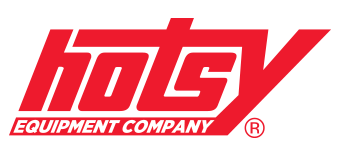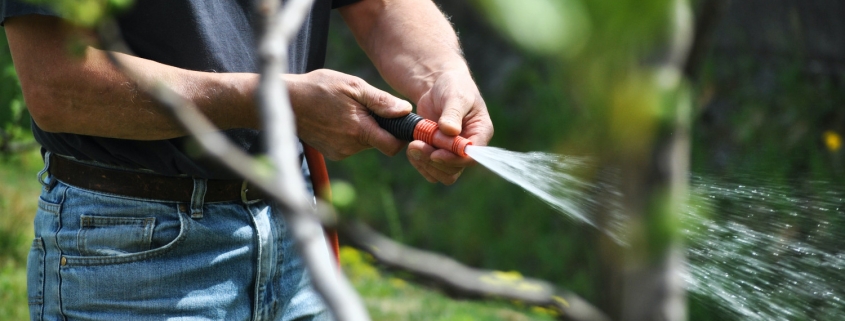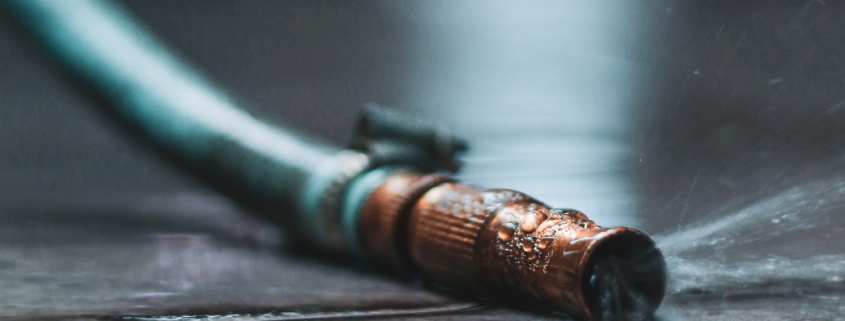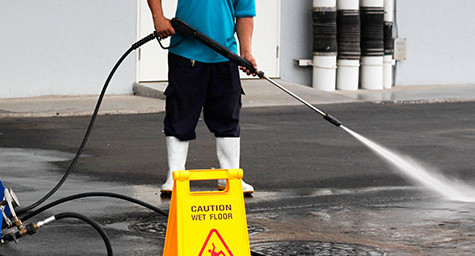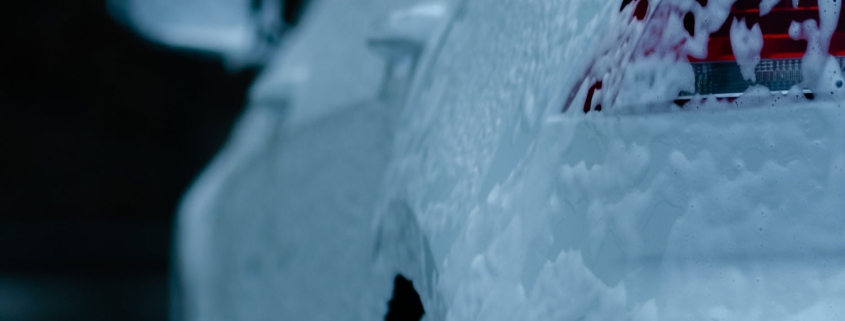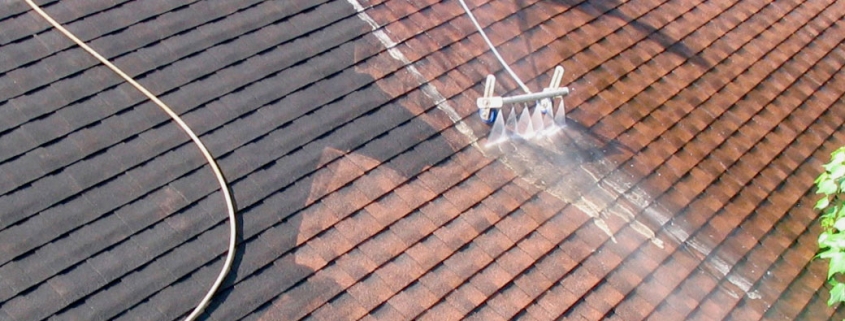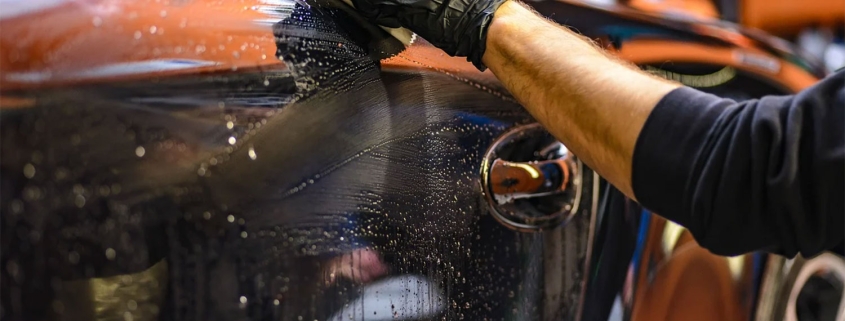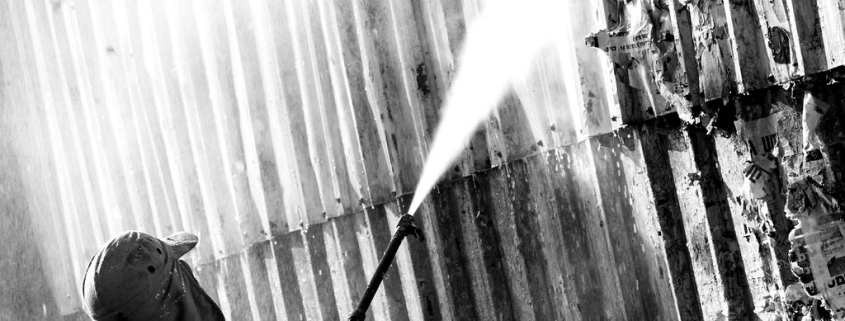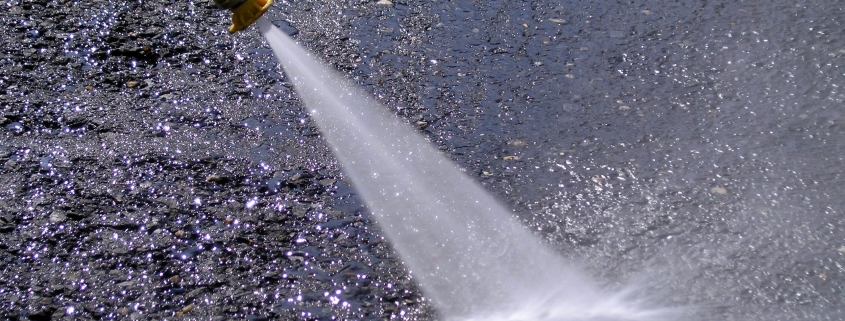Removing paint from any given surface is not an easy job. If you want to apply a fresh layer of paint on something, you always have to remove the original layer (or layers) of paint first. Painting over chipping or peeling paint will only lead to an unstable coat later on.
Pressure washing is one of the best ways to remove loose, chipping, or peeling paint. The high-pressure levels that a pressure washer emits can remove old paint easily and efficiently. However, not all kinds of pressure washers can remove paint effectively. And, there is a specific process that you have to follow to avoid damaging the surface underneath.
In this article, we will talk about what kind of pressure washer to use for paint removal. We’ll also explain the easiest and safest way to remove paint via pressuring washing.
What Kind of Pressure Washer Should You Use to Remove Paint?
There are two main types of pressure washers: hot and cold. Hot pressure washers are designed to cut through oil and grease contaminants. This makes them effective at removing oil stains, grease stains, and anything that won’t come off easily.
Cold pressure washers, on the other hand, are the best for breaking up dirt, soil, and mildew. They are used for general cleaning projects that don’t involve tough stains.
So, what kind of pressure washer should you use to remove paint? We actually wrote a complete guide on hot vs cold water pressure washers if you want to learn all the differences between these machines. Otherwise, keep reading to learn which is best for paint removal:
Cold Vs. Hot Pressure Washers
Cold water pressure washers can remove thin layers of paint effectively, especially if the paint is water-based. Water-based paint doesn’t cling to a surface as strongly as oil-based paint does. As long as the paint is weak and thin, a cold water pressure washer will do.
However, most commercial buildings have oil-based paint. This is because oil-based paint is designed to last a long time. This type of paint is most ideal for surfaces that go through a lot of wear and tear, which is common in commercial establishments.
That said, it is very likely that your place of business has been painted with oil-based paint. Therefore, it will be a little harder to clean. In this case, a hot pressure washer will work best. Hot water cuts through oil and grease efficiently, making it effective against oil-based paint. Plus, the high pressure will help you strip paint faster.
How Does a Hot Pressure Washer Work?
Commercial hot water pressure washers contain heating chambers that heat up the water up to 200°F as it moves through the system. These heating chambers use diesel, kerosene, propane, or natural gas to burn. Typically, hot water pressure washers can provide hot water for four or more hours of continuous use. If you want to learn more about how hot water pressure washers work, take a look at our complete guide.
How to Remove Paint With a Hot Pressure Washer
Stripping paint from a surface can be a fairly easy job as long as you’re doing it right. A hot water pressure washer is the most effective at removing both water-based paint and oil-based paint. Either way, you need to know how to strip paint safely and effectively to avoid damaging the surface or causing a nasty accident.
Here’s how you can remove paint with a hot water pressure washer:
Step 1: Gather materials and gear
Aside from your hot water pressure washer, you need to have safety gear to protect yourself from the hot water as well as the high water pressure. Make sure you are wearing safety goggles, work gloves, work boots, and thick clothing that covers your entire body before you start.
You may also want to have a pressure washer detergent to remove paint easier. A detergent designed to remove paint emulsifies the oil and water and makes it easier to wash away while you’re pressure washing. Learn all about how to use soap with a pressure washer if you’ve never done so before.
Have sandpaper or a paint scraper ready in case any paint chips linger after you’re done.
Step 2: Choose the right nozzle
The yellow 15- degree nozzle is the best for removing paint from concrete, metal, and masonry. This nozzle creates a wide sheet of water that will allow you to remove paint efficiently, especially if you are cleaning a large surface.
However, if you are removing paint from a weaker surface like wood, you may want to use the 25-degree nozzle which emits less pressure than the yellow nozzle. Stripping paint using excessive pressure can easily damage wood and cause moisture to penetrate deeply into the surface.
Step 3: Clear the area
Clear the area of anything that you don’t want to get wet or risk getting damaged while you’re pressure washing. At the same time, bar access to the area you’re cleaning to prevent people from getting in the way. Remember, you are using hot water that can reach up to 200°F. Water that hot can cause a third-degree burn with just two seconds of direct exposure.
Place your pressure washer at a safe distance from yourself and the structure you are cleaning. If there are windows nearby, you may also want to cover them with plywood to prevent them from shattering in case you accidentally direct the spray to them. The same goes for anything that cannot withstand high pressure.
Step 4: Start washing
Hold the gun 12 to 18 inches from the surface. Maintain a firm grip and hold the wand at an angle. Wash in sections, spraying in a downward, sweeping motion while keeping the nozzle moving consistently. You don’t want to direct the pressure on one spot too long and risk damaging the surface.
Stop the spray from time to time to check your progress. It can also get very warm in your work area, so taking frequent breaks can help prevent you from overheating.
If you are stripping paint from a very large area, it is also important to let the power washer rest so that the water temperature remains consistent.
Step 5: Remove excess paint
It may not always be possible to remove every bit of paint with a pressure washer. If there are paint chips remaining after you’re done, scrape it away with light-grit sandpaper or a paint scraper. Be careful not to scrape too hard to avoid damaging the surface underneath; keep your motions as gentle as possible.
Pro tip: use paint thinner to loosen up stubborn spots of paint.
Step 6: Repaint the surface (optional)
Depending on the type of surface you’re washing, you may have to wait several hours or days for it to dry completely before applying a fresh layer of paint. To be safe, wait at least two days before repainting concrete and three days for wood, especially if the surface is outdoors.
Use your power washer again if necessary.
Remove Paint Efficiently With Hotsy Commercial Pressure Washers
Whether it’s a cold or hot pressure washer you’re looking for, we have only the best-quality units to offer. With over 40 years of experience, we have one of the best and biggest selections of industrial pressure washers in the industry. It should come as no surprise we’re regarded as a top pressure washer store online.
Our machines are built outlast, made from the sturdiest materials, and designed by the most brilliant teams. From stubborn flaking paint to decades’ worth of mildew, Hotsy commercial pressure washers in San Antonio can blast any contaminant away from almost every surface that you can think of. And while running into a problem with our machines is rare, our customer service team is always ready to lend a hand when you need it.
So, stop delaying that paint removal job and let one of our high-efficiency machines work through it!
